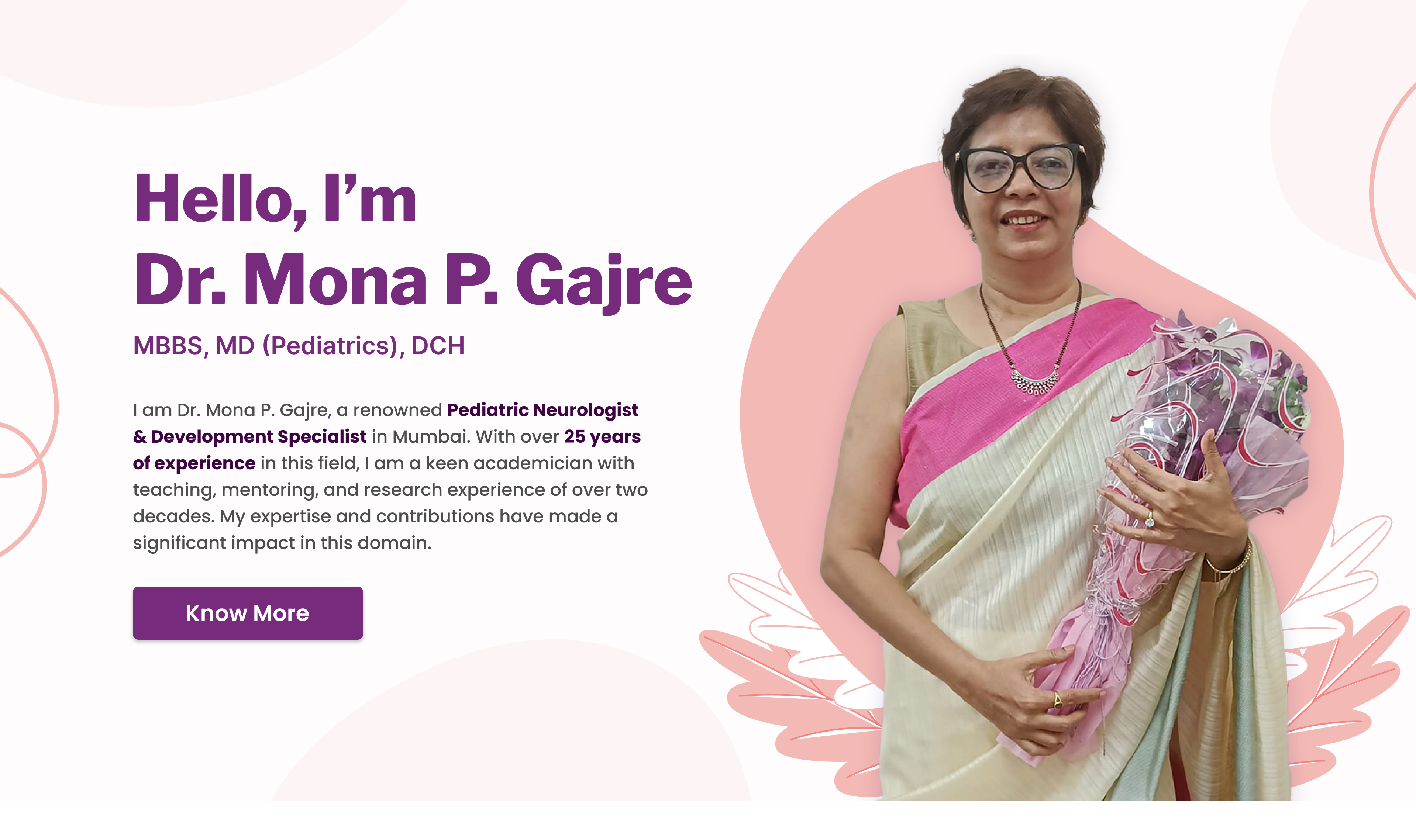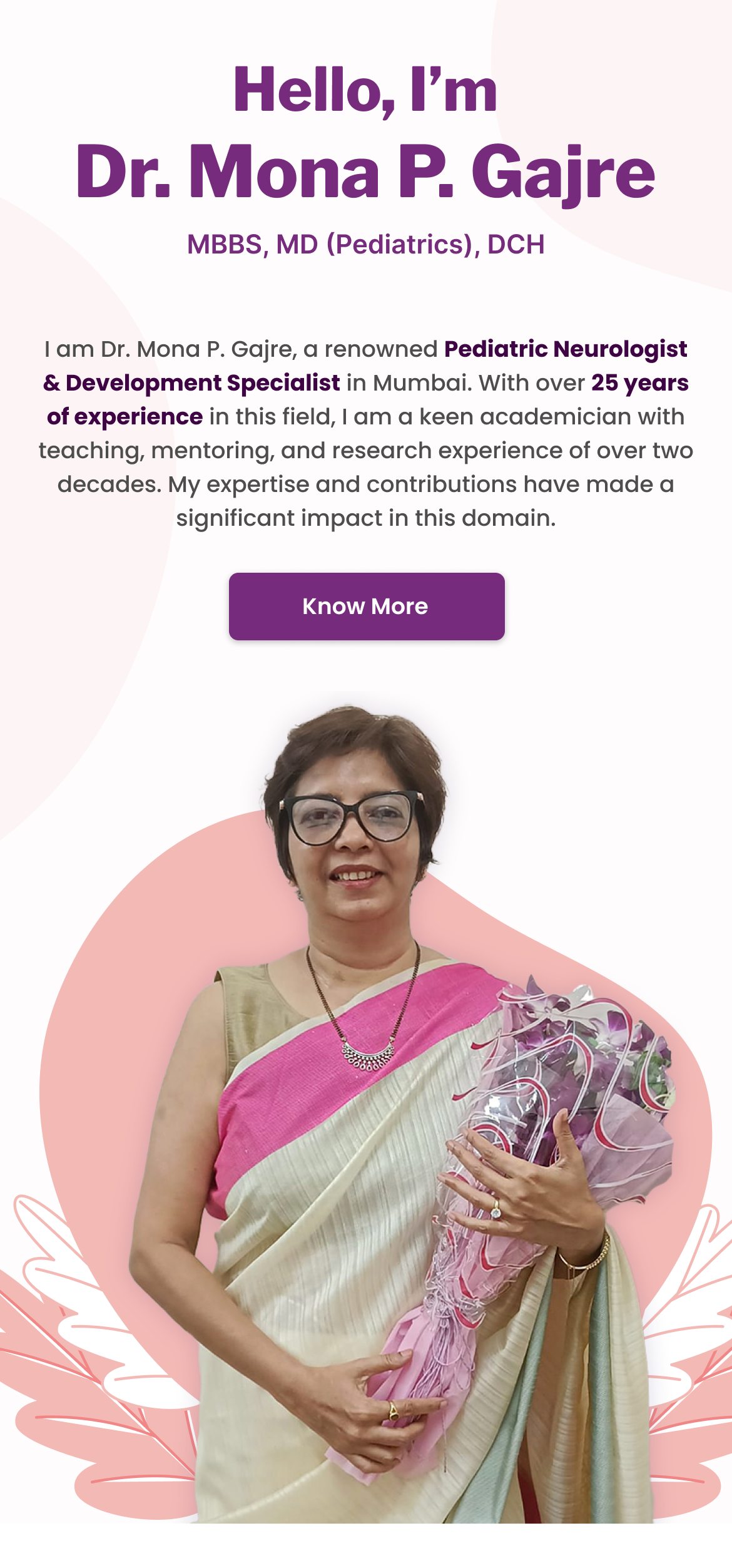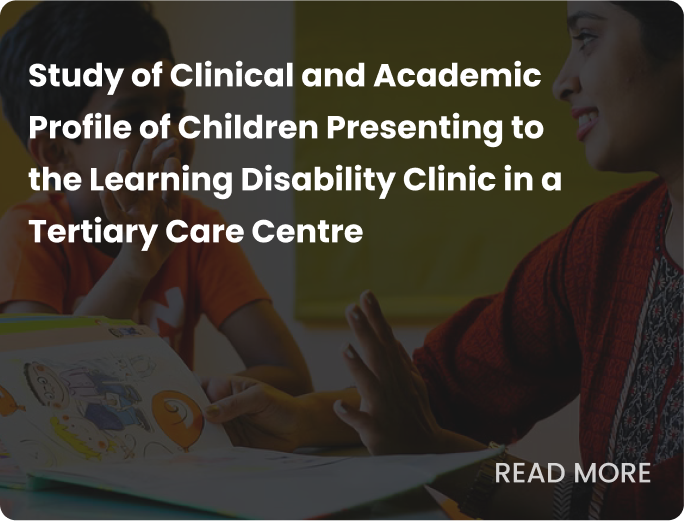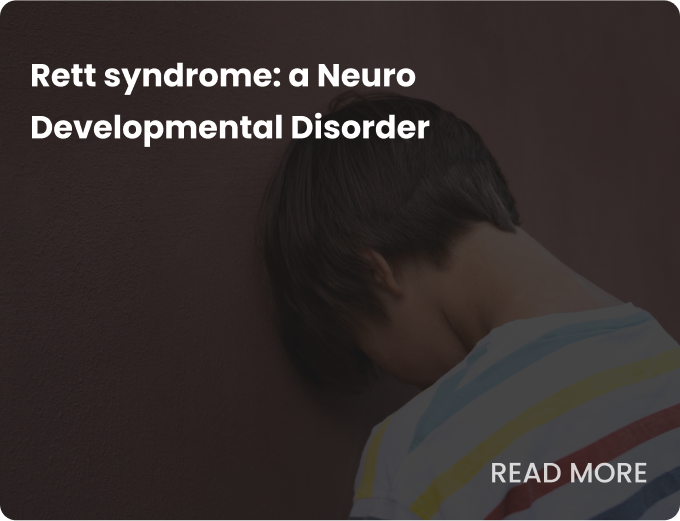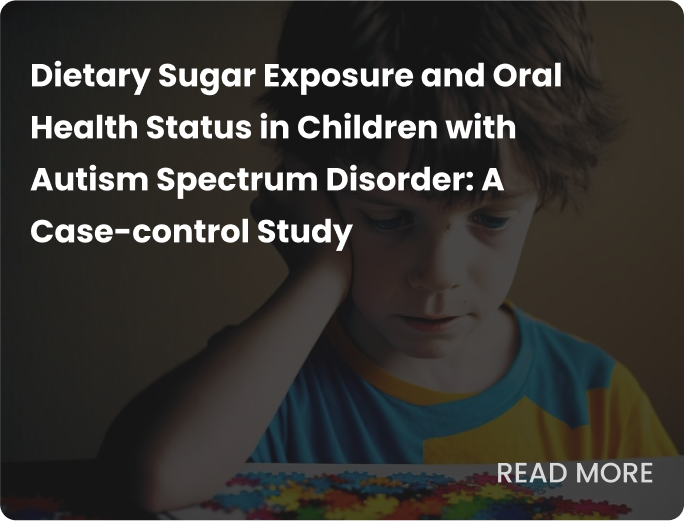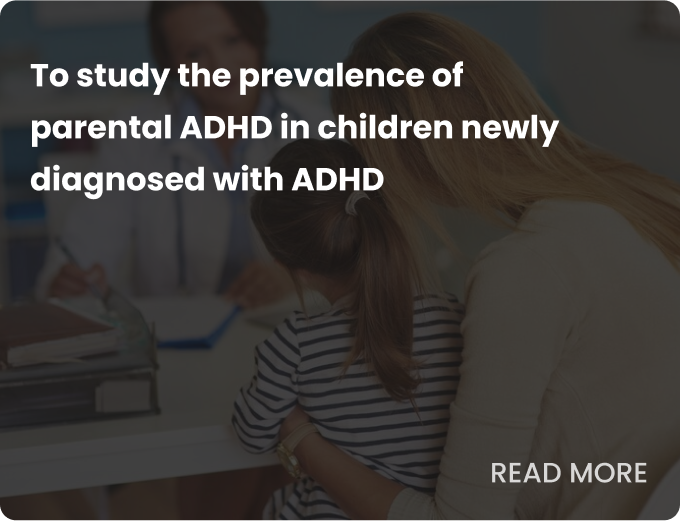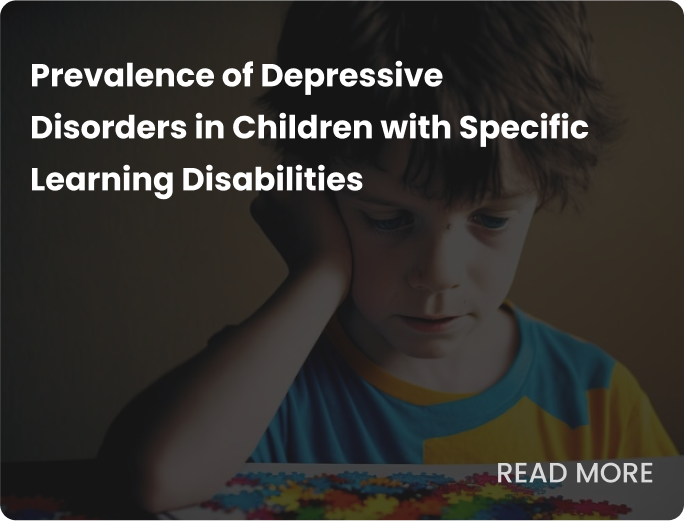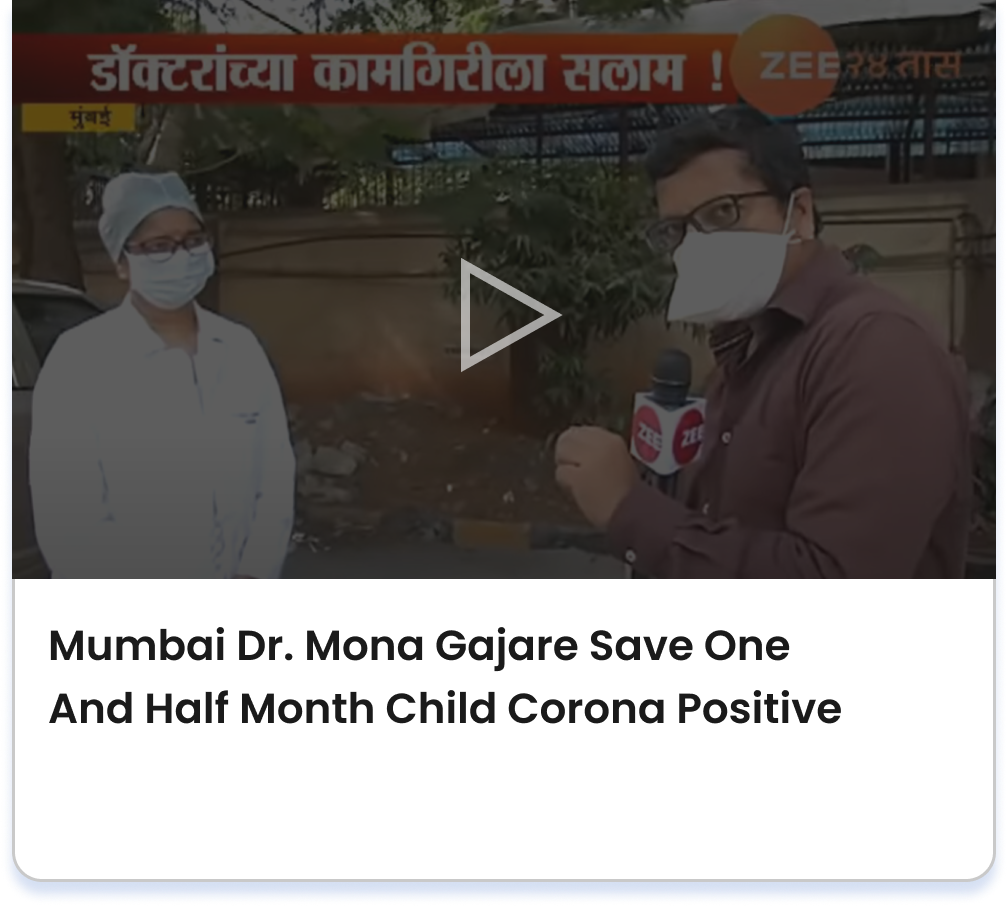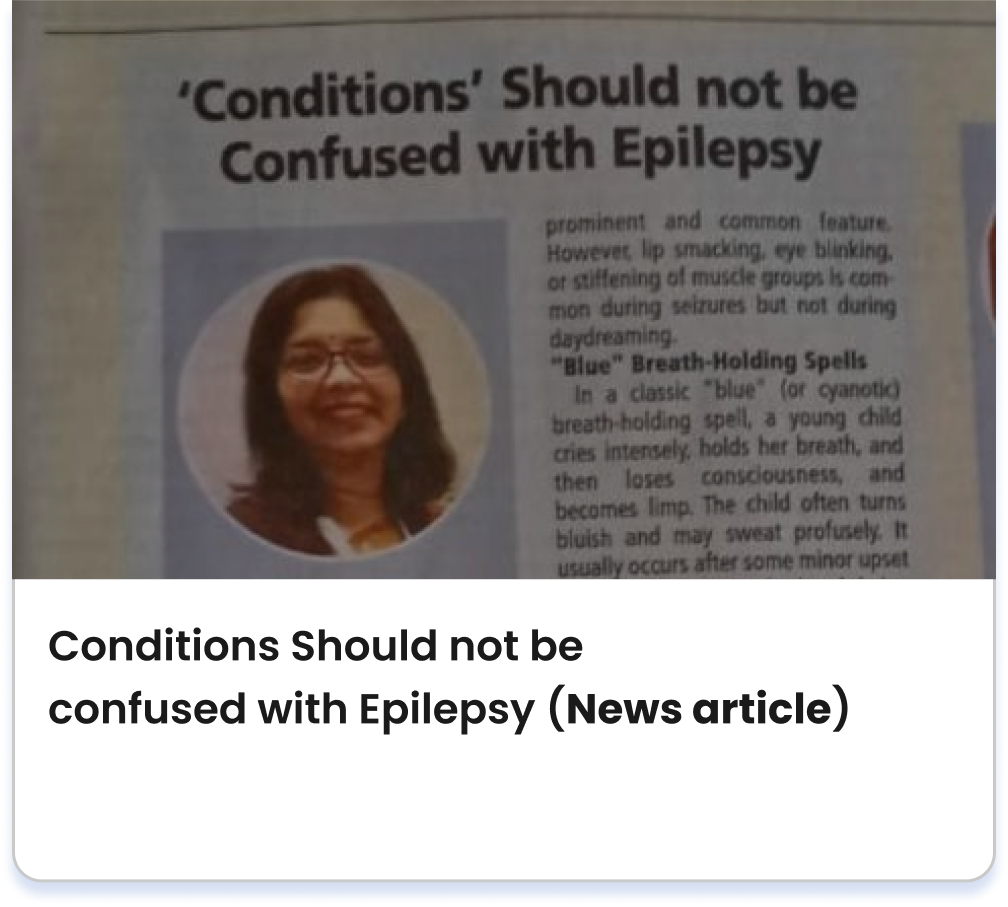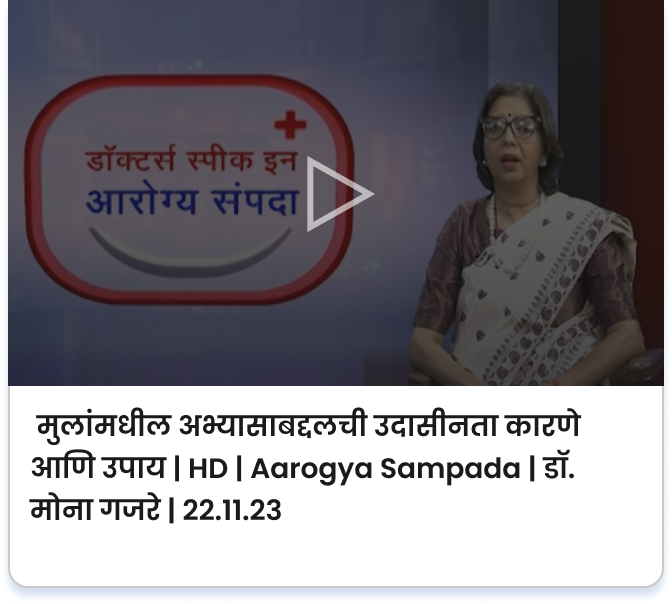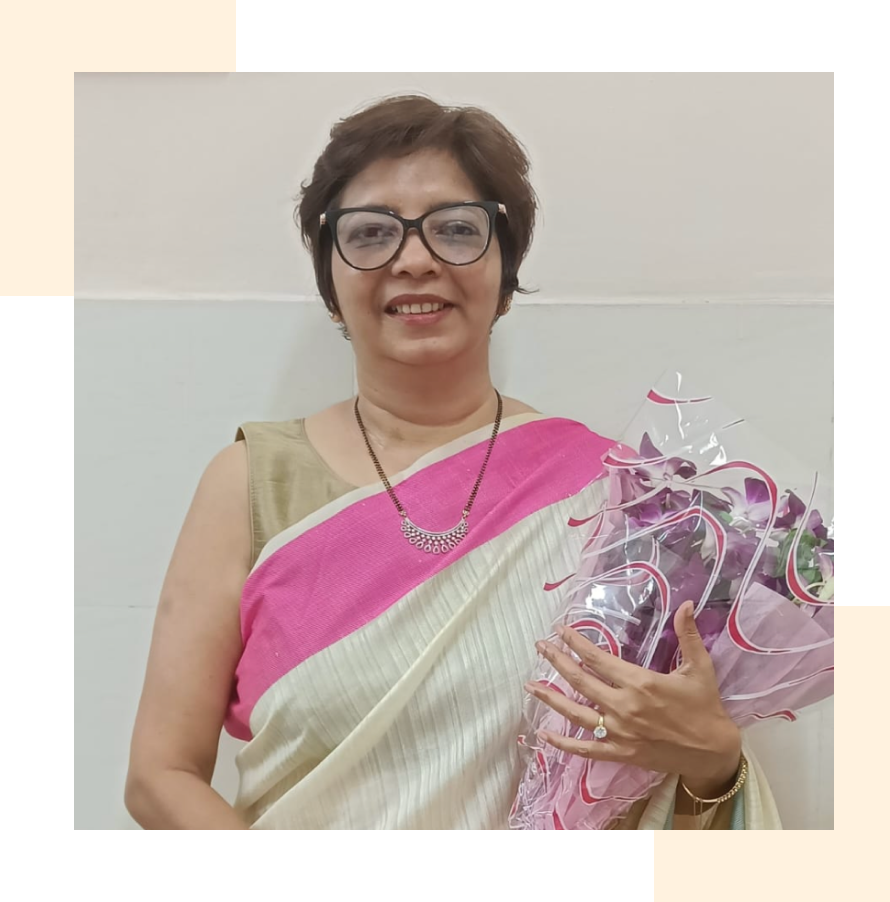
I’m Dr. Mona Gajre
MBBS, MD – Pediatrics, Diploma in Child Health (DCH) Pediatrician
“I am Dr. Mona P. Gajre, a renowned Pediatric Neurologist & Development Specialist in Mumbai. With over 25 years of experience in this field, I am a keen academician with teaching, mentoring, and research experience of over two decades. My expertise and contributions have made a significant impact in this domain.”

Autism
Learning Problems
Mood Disorders
Behavioral Disorder
ADHD / ASD
Language Disorders
Sleep Disorders
Intellectual Problems
Developmental Delay
Motor Problems
Muscle Problems
Nerve Problems
EEG test now available
IQ Test
Educational tests
Autism scales
ADHD tests
Aptitude test
Personality Test
Psychotherapy
Career Counselling
Learning Disability testing

Autism
Learning Problems
Mood Disorders
Behavioral Disorder
ADHD / ASD
Language Disorders
Sleep Disorders
Intellectual Problems
Developmental Delay
Motor Problems
Muscle Problems
Nerve Problems
EEG test now available
IQ Test
Educational tests
Autism scales
ADHD tests
Aptitude test
Personality Test
Psychotherapy
Career Counselling
Learning Disability testing
FAQs Section
Parenting In Modern Times
As the proverb, says “It takes a village to raise a child”. We know from our grandparents wisdom that raising a child is a team effort.
In today urban spaces, with its often nuclear families, this idea although understood can rarely be practised. Today, for a nuclear family, life appears easy, but its often not and definitely not simple.
It is often said that the child’s first teacher is their mother. Its in the family where the child learning begins, hence the role of the family(elders) is foundational in a child’s life. So it’s the family, its intergenerational connections with elders, which deeply influence the child’s attitude, behavior, values and character in life. As the child matures, teachers and mentors often play an important role in the young child’s self-development.
The child is silent observer and an active imitator, they keen imitate elders in their way of eating, talking, processing emotions- all these are key learning points for the young child. In urban societies, the concept of “halo parenting” is of great worth. In fact the bond between grandparents and children is genetically programmed and goes back since time immemorial when sapiens were in pre agricultural era. Trusted elders such as grandparents, siblings, uncles, aunts and caregivers looked after the child together so the child can have several attachment figures besides the parents. This definitely lessens the stress and emotional burden of the parents.
As children grow up, especially during pre teens, they rebel against parental advice, whereas they look up to role models outside their home. These should often be elders, children look up to and like to spend time with. Thus having a halo parenting network goes a long way towards creating a secure and safe community for the child.
A few tips on interacting with children at all ages is—— pay attention!
• • When speaking to children, make eye contact. When they are talking, LISTEN, let them finish their thoughts and only then respond.
• Listening will teach many things that are otherwise lost in the noise of life.
• The tantrums of your child, the meltdowns, the loving hugs, the shyness, the mischief are all opportunities to listen to the unsaid feelings of your child’s heart.
• Keep listening with your eyes and ears.
• Try to make yourself available mentally, emotionally and physically, so they know they can reach out at any time.
Singing or reading to them since an early age, bedtime stories, singing lullabies, playing simple games, inviting family over for festivals, special occasions, all help with the child’s growth.
• Words have power, conversations with children should be natural, free flowing.
• Please remember that children have lots of ideas often fluctuating, please be patient with them.
• Studies show that conversations with open ended questions and back and forth dialog are the most beneficial.
• Such conversations have a positive impact on parts of the brain responsible for language skills and comprehension.
Please speak to children with respect, so that they learn to communicate in a respectful way.
Remember children are like sponges, they soaking up everything-the good, the bad and the ugly.
Its said that the quality of parenting is a reflection of interpersonal relationship quality among spouses.
Its essential to discover friendship in marriage and has an attitude of self- improvement which gives strength to relationships.
In today’s world, STRESS is the new buzz world, it exists all around us. Stress at work, stress at school, the stress of finances, the stress of relationships, and stress because of stress itself! Chronic stress is the unaddressed elephant in the room, as it causes a build up of prolonged emotional pressure leading to trauma of body at cellular level ultimately causing burnouts!
A simple way to beat stress is to laugh. Laugh often. … simple, genuine smile can ease off
many triggers for stress.
Lastly…….
Please remember to enjoy your child’s childhood – They grow up too fast!!!!!!!
A young child matures in different areas of development such as language, socio- communication, cognition, activities of daily living.
These are known as development areas or domains. Within these domains exist certain milestones which have to be achieved as they acritical for the child normal development.
These milestones need to be attained in the child in the specified time. This indicates normal Brain development.
If there is any delay, we can wait for 1 – 2 months and then consult a Pediatric Neurologist and Developmental Disorders Specialist for further assessments to arrive at a diagnosis and start treatment at the earliest. Hence its absolutely essential for parents to know these critical milestones at particular ages. So let us know now recognizethe key milestones at various ages of a normally developing child……………..
What is the development of a 6 months baby?
In a 6 month infant given below are the key milestones in four different development areas:
• Social/Emotional Milestones
• Knows familiar people
• Likes to look at himself in a mirror
• Language/Communication Milestones
• Takes turns making sounds with you, babbles
• Cognitive Milestones
• Puts things in her mouth
• Reaches to grab a toy
• Physical Milestones
• Rolls from tummy to back
• Pushes up with straight arms when on tummy
• Leans on hands to support when sitting
How to support your 6 month old in achieving these milestones?
When your baby smiles, you smile; when he makes sounds, you copy them.
“Read” to your baby every day by looking at colourful pictures in magazines or books and talk about them. Respond to her when she babbles and “reads” too. Point out new things to your baby and name them.
Put your baby on her tummy or back and put toys just out of reach. Encourage her to roll over to reach the toys. Leher look around and give her toys to look at while she learns to balance herself. Sing to your baby and play music. Help your baby learn she can calm down.
Talk softly, hold, rock, or sing to her, or let her suck on her fingers. Screen time is not recommended for children younger than 2 years of age
What is the development of a one year child?
In a 1 year old the key milestones in four different development areas:
Social/Emotional Milestones Plays games with you, Language/Communication Milestones
• Waves “bye-bye”
• Calls a parent “mama” or “dada” Understands “no” Cognitive Milestones
• Puts something in a container, like a block in a cup
• Looks for things he sees you hide, Physical Milestones
• Pulls up to stand
• Walks, holding on to furniture
• Picks things up between thumb and pointer finger,
How to engage with your 12 month old child?
Give your baby safe places to explore. Baby-proof your home Teach your baby “wanted behaviors” When you say “no,” say it firmly. Point to interesting things you see, such as a truck, bus, or animals.
Help your baby get used to foods with different tastes and textures.
What is the development of your 3 year child?
In a 3 year old the key milestones in four different development areas are:
Social/Emotional Milestones
• Calms down after you leave her, like at a nursery drop joins other children to play
Language/Communication Milestones
• Says first name,
• Talks with you in 3 word sentences
• Talks well enough for others to understand
Cognitive Milestones
• Avoids touching hot objects, like a stove,
Physical Milestones
• Strings items together, like large beads
How to engage with your 3 year old?
Play outdoor games with your
children. Give your child an “activity box” with paper, crayons, and coloring books. Encourage your child to play with other children. Read with your child. Teach your child simple rhymes, “Twinkle, Twinkle.”
Talk about your child’s emotions and give him words to help him explain how he’s feeling.
Children learn by talking, playing, and interacting with others.
What is the development of your 5 year child?
In a 5 year old, below are the key milestones in four different development areas:
Social/Emotional Milestones
• Follows rules takes turns when playing Language/Communication Milestones Answers simple questions about a story after you read Keeps a conversation going
Cognitive Milestones Counts to 10
• Uses words about time, like “yesterday,” “tomorrow,”
• Physical Milestones
• Dresses and undresses
• Draws a triangle,
How to engage with your 5 year old?
Encourage your child to “read” by looking at the pictures and telling the story.
Teach your child to follow rules in games.
Let your child do things for himself, even if he doesn’t do it perfectly. Eat meals with your child and enjoy family time talking together. Set limits for screen time (TV, tablets, phones, etc.) for your child, to no more than 1 hour per day.
What is Neurodevelopment?
Physical or motor growth is when the baby grows into a young child by an increase in number of body cells and size of these cells.
Similarly the young child matures in different areas of development such as language, socio communication, cognition, activities of daily living. These are known as development areas or domains.
Within these domains exist certain milestones which are critical for the child normal development.
These milestones need to be attained in the child in the specified time. This indicates normal Brain development.
If there is a delay in any milestone, it may indicate a neurodevelopmental problem.
If there is any delay, we can wait for 1 – 2 months and then consult a Pediatric Neurologist and Developmental Disorders Specialist for further assessments to arrive at a diagnosis and start treatment at the earliest.
Hence its absolutely essential for parents to know these critical milestones at particular ages.
This helps the parents to monitor developmental milestones from birth, to recognize and pick up any delay early.
The child’s brain development starts from intra-uterine life, it continues from the mother’s womb to when should continue normally to attain head control, to sit, stand, run, speak, to understand language, read, write, do math’s, learn grammar, learn decision making. This is called Neurodevelopment.
We need to identify any brain problem (Neurodevelopmental Problem) early, ideally before 2 years of life, so that we can correct it before the child reaches 5 years.
What are Neurodevelopmental Disorders?
Neurodevelopmental Disorders are disorders of brain function that affect motor development, behavior,
social, language ,learning ability of a child and may unfold as the child grows into an adult.
Below are conditions called as NeuroDevelopmental Disorders (NDD).
a. Autism Spectrum Disorder – ASD
b. Attention Deficit Hyperactive Disorder – ADHD/ADD
c. Specific Learning Disability – SLD/Dyslexia
d. Intellectual Disability-ID (Low IQ – Previously called as Mental Retardation (MR)
e. Cerebral Palsy – CP
f. Global Developmental Delay – GDD
When to suspect Neurodevelopmental Problems?
At birth during routine vaccination and well child visits the child’s pediatrician can helps parents to identify these problems and pick up any delays early.
Early suspicion, early treatment ensures better outcomes on treatment.
If there are concerns noticed by the pediatrician, a referral to a Developmental Disorders Specialist doctor will be done immediately.
There is established scientific evidence that the child’s brain grows fast in the 1st 1000 days of life and so any delays in brain development are to be identified before 2 years ideally.
This is as treatment can be started early to get maximal outcomes and help the child to achieve his/her full potential in adulthood.
What is Autism?
Autism spectrum disorders (ASD) are neurodevelopmental disorders that changes brain development of a child. The main areas of difficulties are in a child’s social interaction and communication abilities. It typically starts in early childhood and can pose challenges in functioning within society.
Although there is no one indicator but there are several symptoms that could suggest autism in a child.
What are Early Signs of autism?
As per American Academy of Neurology (AAN) the red flags for autism are:
• No babbling or cooing by 12 months of age
• No gesturing (point ,wave , grasp, etc.) by 12 months of age
• No single words by 16 months of age
• No two-word phrases on his or her own (rather than just repeating what someone says to him or her) by 24 months of age has loss of any language or social skill at any age
What are the other signs of autism?
Some common indicators in children include
• Reduced eye contact,
• Lack of response to their name
• Reduced sharing of enjoyment with parents, peers
• Delayed speech
• Preference for playing alone
• Repetitive behaviors
• Doesn’t like the sound, taste, smell or touch of certain things
• Parents should also note autism may not come alone.
• It can be associated with other medical conditions such as genetic disorders, motor problems, fits, hyperactivity, anxiety, sleep issues, gastrointestinal problems.
What causes autism?
There is no single cause of autism. Till date, research about the cause is still ongoing.
What to do when you are concerned your child may have autism?
Any concerns in the child’s development must be reported to your pediatrician, who refers you for detailed evaluation to a Developmental Disorders Specialist/Pediatric Neurologist for diagnosis and comprehensive management.
What does the doctor do?
Your pediatrician may do a screening test for autism. One of popular test available online free of cost is m-CHAT- R/F. If this screening test identifies an area of concern, a formal developmental and behavioral evaluation is needed. This formal evaluation is done by a trained expert such as a Developmental Disorders specialist.
What are the treatments available?
Intervention for autism should ideally begin as early as possible, even while the evaluation for a definitive diagnosis is ongoing.
The interventions focus on addressing the core features of autism and should be specific, evidence-based, structured, and tailored to the child’s developmental needs. Few children may have behavioral disturbances so under guidance of medical professionals they may need to be started on medicines.
It is best to provide interventions through interdisciplinary teams, coordinated by a Developmental, disorders specialist, clinical psychologists, OTists ,SLP’s, educators, nutritionists, and others.
Children who have autism can improve significantly with intensive training and therapy..
What is ADHD?
All children struggle to pay attention,sit still, or listen and follow directions while growing up. However, for children with ADHD, these kinds of behaviors are so frequent and severe that they interfere with their ability to function at school, home or other social situations.
• ADHD is one of the commonest neurodevelopmental disorders.
• It is mostly diagnosed in childhood and carries on into adulthood.
What does ADHD look like?
ADHD rarely looks the same in any two individuals and children with ADHD can show signs in any or all these areas.
Inattentive: Trouble focusing their attention, concentrating, and staying on task. They may daydream too much and seem absent-minded or forgetful and lose track of things.
• Hyperactive: Fidgety, restless, and easily bored. They may have trouble sitting still or staying quiet when needed. They may have emotional reactions that seem out of proportion for a situation.
• Impulsive: Act too quickly before thinking. They often interrupt, might push, or grab, and find it hard to wait for their turn.
When to suspect ADHD in a child?
It’s normal for children to be distracted, restless, impatient, or impulsive. However, it is time to take a closer look if you see the above mentioned symptoms in your child….
• if symptoms are greater than is expected of children their age or developmental level
• if concerns were present when the child was very young, usually before age 7
• if signs are present across different situations e.g, at home or school or play
• if symptoms impacts child’s functioning (relationship with peers, family members, learning) in different environments.
A lot of times, signs of ADHD are observed and reported by the school as difficulties in self-control, distractive or inattentive behavior.
Please pay close attention to feedback given by teachers.
Who should I contact if my child shows signs of ADHD?
ADHD can be diagnosed by a trained professional such as a Developmental Disorders Specialist. There is no single test to diagnose ADHD, and many other problems, such as learning disabilities which can have similar symptoms. Often ADHD doesn’t come alone. Parents please note that 30% – 50% of children with ADHD may also have learning difficulties.
How to treat ADHD?
Early identification and treatment increases positive long-term outcomes.
In most cases, ADHD is treated with a combination of behavior therapy and medications. There are medications to help ADHD symptoms. These stimulants will have a calming effect on your child. Please note that these medicines are not addictive.
Will ADHD affect my child’s education?
Yes it may…
So please take help of developmental disorders specialists, therapists, to learn about strategies to help children with ADHD perform better at school.
A few strategies include:
• Minimize distractions in class
• Have break time to move around
• Give clear instructions for tasks..
What are specific learning disabilities (SLD)?
Learning disabilities are a condition of the brain that affects a child’s ability to either receive, process, and respond to information. Children with SLD can face difficulties in reading, writing, spelling, maths. It is an invisible disorder but impacts a child academic growth strongly.
Although learning disabilities are present in childhood, they are commonly diagnosed at a school going age. Learning disabilities are a lifelong condition and cannot be ‘cured’, but it can be worked upon with early identification & early intervention.
What are the different types of learning disabilities (SLD)?
The most common types are:
• Dyslexia: used to describe difficulty with reading and/or comprehending what is being read.
• Dyscalculia: describe learning disabilities in math.
• Dysgraphia : describe writing issues.
When to suspect learning disabilities?
The signs of learning disabilities if severe can be seen even in preschoolers (language delays, difficulty in rhymes). Generally its suspected by parents/teacher when there is an unexpectedly low academic achievement without any obvious reasons.
The signs often differ from child to child and on the type of learning disabilities. Please note, presence of signs alone does not necessarily indicate learning disabilities and a professional assessment is necessary to diagnose them.
Who should I contact if my child shows signs of learning disabilities?
Developmental Disorders Specialists are generally the first point of contact.
A psycho-educational assessment by a qualified professional is also required. Its shows a significant gap between a child academic potential and his/her actual achievement .
Parents please note that learning disabilities often has coexistent Attention Deficit Hyperactivity Disorder (ADHD) as a comorbidity and its important to rule out and treat that by an expert professional.There is scientific evidence that on treatment of the ADHD, academics can improve significantly in the same child suspected of an SLD.
What kind of therapies does my child need?
A child with learning disabilities will benefit from professional services which could involve some or all of the following depending on the child’s specific needs – Developmental Disorders Specialists, Special educators, OTists, Counsellors, Psychologists.
What support does my child need in school?
Learning disabilities are included in the 21 disabilities recognized under the rights of persons with disabilities act, India (rPWD Act 2016)
You have to apply through school, to get concessions at board exams after getting a learning disabilities certificate form government authorized hospitals.
What is cerebral palsy?
Cerebral palsy or CP, is a disorder which affects the body movements and posture of a child. It is a permanent disorder and does not go away although its effect on the child and family can be reduced with treatment. CP can become a concern when the child’s motor-skills does not match up to other children of their age these include abilities such as:
• Getting to a sitting position and sitting up without support
• Picking up small objects using his or her fingers
• Pulling up into a standing position
• Walking
If your doctor suspects your child may have CP, he or she may want to perform a few tests. These tests help diagnose CP and can find out cause for the child’s problem.
What causes cerebral palsy?
Cerebral palsy results from brain damage occurring in a baby or young child before or during the birth, or after birth till the first 2 years of life. Cerebral palsy often doesn’t exist alone. Children with CP have problems in seeing, hearing, speech, feeding, constipation and learning. They may also suffer from fits (epilepsy).
How will the doctor diagnose for CP?
Based on medical history,a neurological examination a Pediatric Neurologist/ Developmental Disorders Specialist doctor will confirm child’s level of motor-skills.
The doctor may need to do several exams to make the diagnosis of CP.
After this the specialist may order routine and specialized tests. The specialized tests ordered might include:
• Neuroimaging (CT and MRI)
• Genetic and metabolic tests
In some cases, MRI tests/CT scans do not find the reason for CP. Your doctor may then order additional tests to see if your child’s CP is due to genetic or inherited causes.
What are the treatments in cerebral palsy?
Treatments for cerebral palsy can help manage or improve its symptoms. Often a combination of several treatments has to be given to get improvement. A consultation with Pediatric Neurologist/ Developmental Disorders Specialist is essential to determine the cause and to start medications if required. Other important therapies are:
• Physical therapy
• Surgery
• Occupational therapy
• Botulinum toxin
• Braces, walking aids
Will my child ever walk?
On average, approximately 60% of children with cerebral palsy can walk independently. Another
10% can walk with the help of a mobility device. The answer to these questions is likely to
become clear by about 2 years of age.
• Generally if the child can sit independently at 2 years, it is expected that child will be able to
walk by 6 years. If a child cannot sit but can roll at 2 years, there is a possibility that child may be
able to walk unaided by 6 years.
• It is found that if a child is unable to sit by 4 years, can rarely walk later in life.
What is a febrile fit/seizure?
Febrile fits/seizures is a convulsion that occurs among children aged between 6 months and 5 years (peak age 12-18 months) who develop fever with a body temperature above 100.4°F (38°C). Fever can occur anytime during or after a seizure and the majority of febrile seizures occur within 24 hours of fever onset.
• It is the most common type of seizure in children that is triggered by fever. There are two types of febrile fits-simple febrile seizures and complex febrile seizures.
• It is not epilepsy, and it generally does not affect the child’s development (brain and intelligence).
Most febrile fits usually stop by the age of 6 years.
• It usually occurs when the child develops fever because of viral or bacterial infections such as common cold or flu-like illness, ear infection, or urinary tract infection.
Some children may have one or more affected family members with febrile fetor epilepsy.
What should I do when my child develops a fever next time?
• If your child develops a fever next time, record the temperature using a thermometer.
• Avoid overdressing the child.
• Tepid sponging using tap water and towels must be done over entire body including the head area.
• Paracetamol orally/suppository must be given in the dosage recommended by your Pediatric Neurologist/pediatrician in the beginning of fever.
• Paracetamol would help to decrease the temperature, and it will reduce the chances of febrile seizures.
• Ensure adequate intake of fluids to child to prevent dehydration.
• The cause of fever must be identified and appropriately treated.
• Sometimes oral clobazam may be given in certain children for 2-3 days of fever
as per decision by the doctor.
What tests are usually done?
There is no need for an MRI brain or EEG in a child with simple
febrile seizures. However in certain cases especially of complex febrile fits these investigations may be required.
What are the chances that my child will have another febrile seizure?
• About 40%of children with febrile fits will have a recurrence
of seizure.
• This is especially possible when the child has had the febrile fit at an age of <18 months, if child’s development is already delayed, if the fever was of <1 hour before the seizure, if the fit seizure occurred when child ‘s temperature was <100.4 F, or if there is family history of febrile seizures/epilepsy.
What are the chances of epilepsy if my child has febrile fits?
• The risk of epilepsy with simple febrile seizures is 1%,this is similar to
the risk of developing epilepsy in the general population.
• The risk of epilepsy may increase among those with a complex
febrile seizures, febrile status epilepticus, family history of epilepsy or if child has a developmental delay of milestones.
Epilepsy is a neurological condition that causes a child to have repeated fits. In epilepsy, normal brain activity is disturbed leading to increased electrical activity in the brain. When a child has two or more fits at least 24 hours apart, this is called as epilepsy.
What are factors to be avoided in a child with epilepsy?
The known factors which can trigger fits in children with epilepsy are:
• Fever
• Sleep deprivation
• Flashing light patterns
• Fasting
• Stress
• Excessive screen time
Which doctor to consult for epilepsy?
It is always prudent to consult a Pediatric Neurologist for a suspicion of epilepsy.
During active fits, the child should be taken to emergency medical care at the nearest medical facility.
The first line of treatment for epilepsy is medicines that control the fits. These are known as anti-epileptic drugs (AEDs) or anticonvulsant drugs. Sometimes, a child may require only one medicine for his fits, but in some cases, child may require more than one anti fit medicines.
What are tests required for epilepsy?
Before making a diagnosis of epilepsy, the Pediatric Neurologist will take a
• Detailed medical history
• Physical examination followed by certain tests such as Blood tests
• Electroencephalogram (EEG): Sometimes, video-EEG is required to record the fits.
• MRI scans/CT Scan:
In some cases, a genetic/metabolic/autoimmune panel may be required.
How can fits recurrences be prevented?
Most children can become seizure free with anti fit medications.
• Taking anti fit medicines in correct dosages, regularly or as advised by Pediatric Neurologist is the only way to prevent fits.
• Missing doses increase the chance of having seizures.
Record frequency and types of fitsin diary – it will be very helpful to Neurologist for determining treatment.
• It is important to follow-up with your Neurologist doctor regularly.
What are the general lifestyle measures for my child diagnosed with epilepsy?
Child with epilepsy needs to be treated as a normal child as far as possible, over protection should be avoided.
If seizures are not well controlled, then activities such as cooking, swimming, driving and cycling should be under supervision.
What are the precautions to be taken at school and which sport can my child play?
The child should attend normal school regularly as far as possible.
Parents should inform teacher about the disease and the medication which the child is taking.
A laminated card with name and contact number of doctor name, current medicines, its dosages can also be kept in child’s pocket.
Teacher should be trained to recognize fit, position the child, and provide nasal spray of midazolam if fits persist for >2 minutes. Medication can be kept in child’s bag, class room or medical room in school. Parents should be informed as soon as possible.
Sports such as cycling, gymnastics, skating, and swimming are of moderate to-high risk in a child with epilepsy. Please make sure your child wears a helmet during sports activities.
What to do when my child has fits?
• Do not panic.
• Do not move the child unless in danger. Protect the child from injury by clearing area, furniture or other objects that may cause injury from falls during the fit.
• Do not restrict movements, turn the child to their side to keep the airway or mouth open and prevent swallowing the vomit.
• Loosen tight clothing around the neck.
• Do not place anything in the mouth or give them anything to smell.
• Do not give anything by mouth until fully recovered.
Note the time both start and finish time of the fit -how long did it last? Most importantly video record the event.
Give nasal spray of midazolam if fits persist for >2 minutes
When should I ask for medical help or contact local doctor/hospital?
• You are frightened or need help.
• The fits continues for despite giving nasal midazolam spray.
• If one fit follows another.
• If the child is injured or you are concerned about their breathing.
You believe child needs medical attention.
What are some strategies for getting a good night’s sleep?
• Sleeping environment should be quiet and dark.
• Go to bed at least half an hour before trying to fall asleep.
• Do not watch television in bed.
• Avoid tea, coffee, carbonated drinks for 6 hours before bedtime.
• Exercise daily but do not exercise within a few hours of going to bed.
Specialized tests done in children with Brain Problems
This is simple, quick and minimal painful procedure, Sometimes children may need pre procedure oral sedation to calm them. In this a needle is inserted through the skin of the lower back and into space surrounding spinal cord.
It is done to collect clear, watery cerebrospinal fluid (CSF).The CSF is fluid around brain and spinal cord, it cushions and protects delicate brain organs in skull and spine. As with any procedure there are few risks such as post procedure headache, risk of infection is
uncommon.
LP give treating Pediatric Neurologist information related to infections of brain,
TB in brain demyelination conditions and others.
A CT scan takes a picture of the brain that is more detailed than a normal X-ray, but less detailed than a MRI. It uses X-rays to create detailed images inside of body. Sometimes children may need pre procedure oral/iv sedation to calm them.
The child lies on a table that is moved into a large doughnut shaped machine. The CT
scan is tolerated well as its quick, open, noiseless technique. CT scans use radiation in
small amounts and benefits often outweigh risk of radiation.
Metabolic tests are urine and blood tests that can spot important
inherited disorders. Sometimes if these disorders go unnoticed, they can lead to serious health problem.
It’s a medical test that measures electrical activity of the brain. Often young children are given specific instructions by EEG technician on steps to prepare for EEG next day. These include head bath, sleep deprivation, specific activation procedures, oral sedation medicines during the EEG test. In this test, small electrodes are placed on head with a paste like substance. These electrodes detect electrical activity of the brain and transmit the information of brain activity in waveforms to a computer.
Post procedure the paste is removed easily with soap and water. EEG is safe and painless
procedure without any known side effects. Please always follow instructions given by
Pediatric Neurologist.
In some cases, MRI tests or CT scans do not find the reason for child’s condition. The
What is ADHD?
All children struggle to pay attention,sit still, or listen and follow directions while growing up. However, for children with ADHD, these kinds of behaviors are so frequent and severe that they interfere with their ability to function at school, home or other social situations.
• ADHD is one of the commonest neurodevelopmental disorders.
• It is mostly diagnosed in childhood and carries on into adulthood.
What does ADHD look like?
ADHD rarely looks the same in any two individuals and children with ADHD can show signs in any or all these areas.
Inattentive: Trouble focusing their attention, concentrating, and staying on task. They may daydream too much and seem absent-minded or forgetful and lose track of things.
• Hyperactive: Fidgety, restless, and easily bored. They may have trouble sitting still or staying quiet when needed. They may have emotional reactions that seem out of proportion for a situation.
• Impulsive: Act too quickly before thinking. They often interrupt, might push, or grab, and find it hard to wait for their turn.
When to suspect ADHD in a child?
It’s normal for children to be distracted, restless, impatient, or impulsive. However, it is time to take a closer look if you see the above mentioned symptoms in your child….
• if symptoms are greater than is expected of children their age or developmental level
• if concerns were present when the child was very young, usually before age 7
• if signs are present across different situations e.g, at home or school or play
• if symptoms impacts child’s functioning (relationship with peers, family members, learning) in different environments.
A lot of times, signs of ADHD are observed and reported by the school as difficulties in self-control, distractive or inattentive behavior.
Please pay close attention to feedback given by teachers.
Who should I contact if my child shows signs of ADHD?
ADHD can be diagnosed by a trained professional such as a Developmental Disorders Specialist. There is no single test to diagnose ADHD, and many other problems, such as learning disabilities which can have similar symptoms. Often ADHD doesn’t come alone. Parents please note that 30% – 50% of children with ADHD may also have learning difficulties.
How to treat ADHD?
Early identification and treatment increases positive long-term outcomes.
In most cases, ADHD is treated with a combination of behavior therapy and medications. There are medications to help ADHD symptoms. These stimulants will have a calming effect on your child. Please note that these medicines are not addictive.
Will ADHD affect my child’s education?
Yes it may…
So please take help of developmental disorders specialists, therapists, to learn about strategies to help children with ADHD perform better at school.
A few strategies include:
• Minimize distractions in class
• Have break time to move around
• Give clear instructions for tasks..
A MRI takes detailed pictures of body organs using magnetic fields. Often young children need pre procedure oral/iv sedation to calm them and cooperate well. The child lies on table and is moved into tube shaped machine.
The experience in older children can sometimes cause anxiety due to confined space and loud noises produced by machine during scans. Its important to note that children with metal implants in their body cannot undergo MRI.
Genetic testing is a blood test that can provide information about the inherited problems, genetic defects, and any nervous system abnormalities your child may have.
Patients Reviews
Verified Patient (Verified)
In my experience Dr. Mona Gajre is an incredible and a highly trained doctor. In my experience she is extremely good at her job and would definitely recommend her.
Verified Patient (Verified)
After meeting her, we gained a very useful knowledge about.. which we feel all the parents or family members of children must know to proactively detect ailing symptoms if any, to ensure a timely treatment at the early stages.
Verified Patient (Verified)
When we first visited Dr. Gajre, we were uncertain about procedures and other formalities however at the end of the process not only were we as parents relieved but totally reassured about our child’s future. A very humble and amazing professional we strongly recommend her to all parents of children having learning disabilities.
Verified Patient (Verified)
Dr. Mona Gajre is incredible. Not only has she taken great care of my child’s health, but also she is lovely to speak with at every appointment. It’s rare to find a doctor that combines such personal touches and care for a patient as a person with outstanding quality of medical care with experience of many years. I highly recommend becoming her patient.
Verified Patient (Verified)
Dr. Mona Gajre is incredible. Not only has she taken great care of my child’s health, but also she is lovely to speak with at every appointment. It’s rare to find a doctor that combines such personal touches and care for a patient as a person with outstanding quality of medical care with experience of many years. I highly recommend becoming her patient.
Verified Patient (Verified)
We have been seeing Dr Gajre since November last year as our son faced some difficulties in academics due to his short attention span. His school suggested her name. She has been quite accurate and effective in her diagonasis, assessment and treatment plans. In her we found a sympathetic person too as she has always been gentle, patient and open to our suggestions and observations concerning the treatment. Results of her compassionate approach and professional competence and brilliance are seen in remarkable improvements in our son. We are extremely grateful to her.
Verified Patient (Verified)
Our son was facing multiple development issues along with difficulties in school and writing. We were referred by a family friend to Dr Gajre. Madam is expert in dealing with multiple Pediatric issues including developmental and rare disorders. After meeting madam, our son underwent detailed investigations under madam’s supervision. The investigations and examinations were very much beneficial to come to diagnosis and details of issues that our son is facing. The entire team and departments are very efficient in diagnosing complex cases, also the services are cost effective and to the point. I am extremely thankful to Dr Gajre madam for fast actions taken by madam to help us. The Neurodevelopmental clinic is a specialized department to deal with so many patients in details, madam was always available when ever we needed guidance. We are looking forward to keep follow up with the clinic. We are very lucky to get support from Dr. Gajre madam and team. Thank you so much madam, we have told many needy children and parents to visit the clinic for guidance.
Verified Patient (Verified)
I visited Dr. Mona when my 7 year old was having learning difficulties and behavioral difficulties. She is the Best Pediatric neurologist who comes from so much of year of experience in this field. I should say I’m very satisfied with the services provided. Dr. Mona helped with the medications and diagnosis of my kid and also started the therapies needed for my kid. It’s been almost a year now and I have seen a lot of improvement in my kid in all aspects.We also found all the doctor us very much supportive, calmly listens to your problem, approachable and helpful who also try to understand parent’s point of view. I would highly recommend others parents of children with special needs neuro to visit Dr. Mona.She has the best knowledge in her field of expertise and treats patients very well. We as a parents will be very thankful to her our whole life.
Verified Patient (Verified)
My experience with Dr Mona Gajre is that, she is so available especially during Pediatric neurological emergencies.In her OPD practice She has often diagnosed children whose diagnosis has been often challenging. These have been patients referred by me for her specialist neurological and seizure opinions.She also has expertise in dealing with children of developmental delays, autism, ADHD, learning disorders.Her meticulous details in history recording, clinical examination, plan for management is her unique hallmark.I am very glad that her services are now available in private hospitals and clinics.
Dr Bijal Shrivastav MD, DCH, Private Pediatrician
Verified Patient (Verified)
My son has been a ‘difficult to manage’ child since his birth. Always cranky, fidgeting but extremely intelligent. As something was amiss, I had taken him for psychological assessment when he was around 5 years old. They concluded that he is suffering from mild ADHD. However, I could not continue with the treatment due to COVID. During the lockdown, my son continued to show the same symptoms with unruly and unorganized behavior’s at home. Through discussion with his gymnastic class parents, I came to know about Dr Mona Gajre. I visited her clinic in Chembur. She got his personality and IQ test done and she informed us that his IQ is above average and that was the reason for some of his behavioral traits. She guided us properly regarding the further course of action. Accordingly he underwent occupational therapy for a brief period and currently, he is undergoing behavior therapy. We are immensely thankful to Dr Mona Gajre as without her guidance, we would have remained in dark about our son’s issues. She is the person through whom I heard the word ‘Gifted’ for the first time. Thereafter I searched various resources on my own on this topic and I could enlighten myself about the same.This also helped me a lot to understand my son. We would remain thankful to Dr Mona Gajre for the lifetime. Anonymous parent

